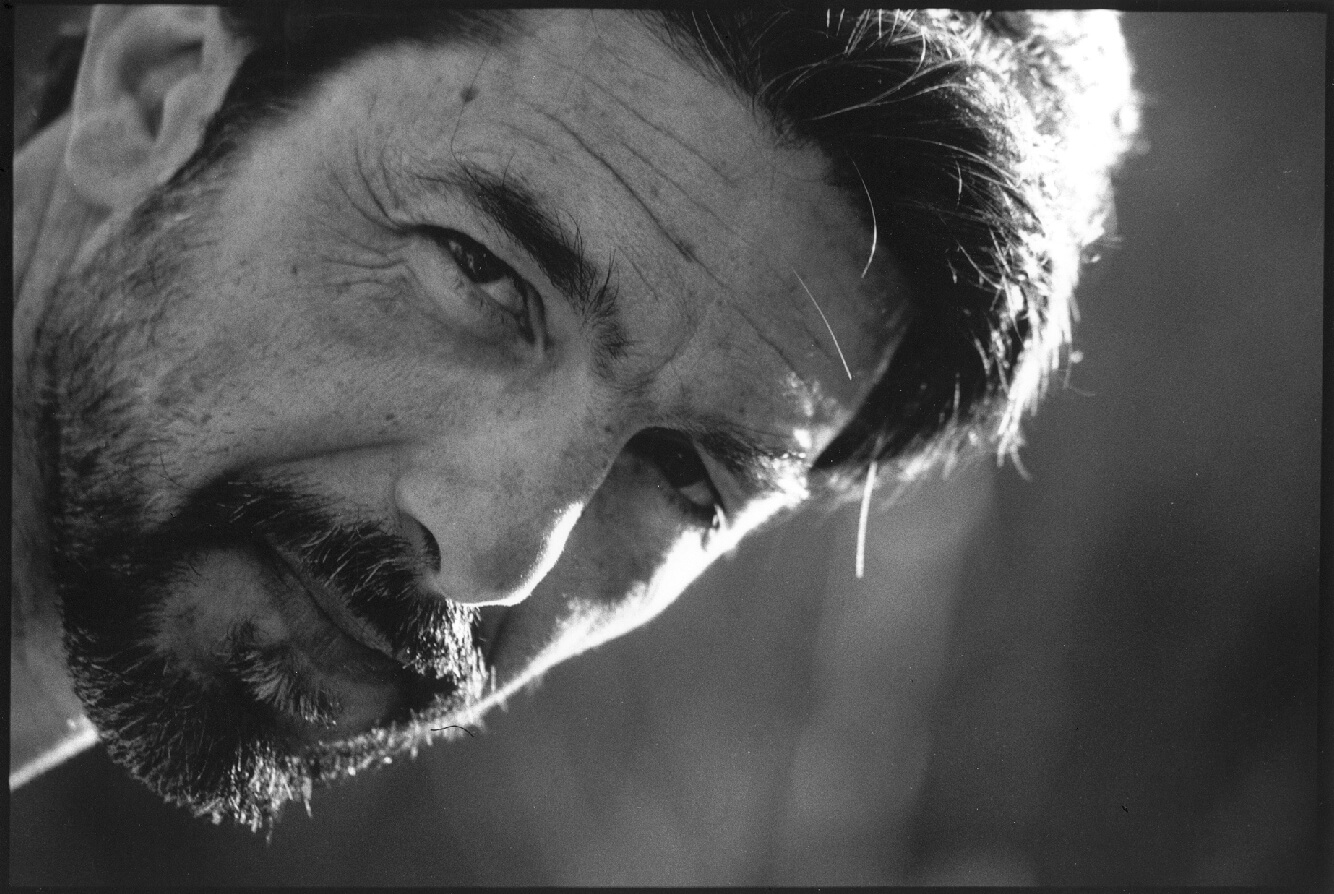
Roberto Zamparo was born in Friuli, Italy, in the province of Pordenone in 1953. He studied engineering at the University of Padova and began travelling and taking photos in the 70s. He began practising yoga in 1985. In 2003 he met the teacher Chogyal Namkhai Norbu and went on to become part of the International Dzogchen Community, which counts more than 6000 members. He continues to travel and use photography as a means of creation of expression until today.
His artistic path can be interpreted as a metaphor for his spiritual journey as their evolution mirror one another. He has been interested in creative and conceptual photography since 1972, producing imaginary subjects and emotions with apparent realism, he has used traditional images as references to concepts and metaphors, often collected into series and sequences, such as Tao and Windows. For the series Lux, he went into great depth in the study of light, as the very subject of vision. The subsequent series entitled “Evolutio” is oriented around the abstract image, a study of the responses of the mind to visual sensations, in pursuit of direct access to the observer’s unconscious. He is currently working on the Metaphysica series which expresses his personal interpretation of the essence of phenomena, exploring the Buddhist concept of emptiness, as a response to the western need for metaphysics.
Over the years Roberto Zamparo has held several exhibitions in Italy, as well as in France and the United States. He published the book “Sur / Radici” and the catalogue “Windows”.
His works are held in the Frank V. De Bellis collection in S. Francisco, in the Colección Borges del Centro de Arte Moderno in Quilmes in Buenos Aires; at the Italian Foundation for Photography in Turin.
Roberto Zamparo è nato in Friuli in provincia di Pordenone nel 1953. Ha studiato ingegneria a Padova, ha iniziato a viaggiare e fotografare negli anni ’70.
Ha cominciato a praticare yoga nel 1985. Nel 2003 ha incontrato il maestro Chogyal Namkhai Norbu successivamente ha contribuito per anni alla gestione della Comunità Dzogchen Internazionale che conta oltre 6000 soci. Oggi continua a usare la fotografia come mezzo espressivo e a viaggiare.
Il suo percorso artistico può essere visto come una metafora del suo percorso spirituale, poiché ne riflette strettamente l’evoluzione. Si è interessato alla fotografia creativa e concettuale sin dal 1972 producendo soggetti ed emozioni immaginarie con apparente realismo, ha utilizzato immagini tradizionali come rimandi a concetti e metafore, generalmente collegate in serie e sequenze: Tao e Windows. Ha approfondito la conoscenza della luce nella serie Lux, come soggetto stesso della visione. Le serie successive intitolate Evolutio si orientano maggiormente verso l’immagine astratta, per studiare le risposte della mente alle sensazioni visive, cercando di raggiungere più direttamente l’inconscio dell’osservatore.
Attualmente sta lavorando alla serie Metaphysica che esprime la sua personale interpretazione dell’essenza dei fenomeni, esplorando il concetto buddhista di vacuità, come risposta al bisogno occidentale di metafisica.
Roberto Zamparo negli anni ha fatto diverse mostre in Italia, alcune in Francia e negli Stati Uniti. Ha stampato un libro “Sur / Radici” e un catalogo “Windows”.
I suoi lavori sono alla collezione Frank V. De Bellis di S. Francisco, alla Colección Borges del Centro de Arte Moderno di Quilmes di Buenos Aires; alla Fondazione Italiana per la Fotografia di Torino.
Art opens the mind.
Through my work I pursue an inner vision, I make work by sharing the process along that journey, I seek to stimulate thought and reflection in the observer, with the hope that it will lead to greater awareness.
My most recent lines of research are orientated towards the observation of the interaction between mind and sensations.
L’arte apre la mente.
Attraverso il mio lavoro cerco una visione interiore, realizzo opere condividendo la mia esperienza in tale percorso, cerco di stimolare nell’osservatore la riflessione, nella speranza che ciò possa portare una maggiore consapevolezza.
Le mie ultime linee di ricerca sono orientate all’osservazione delle interazioni tra mente e sensazioni.